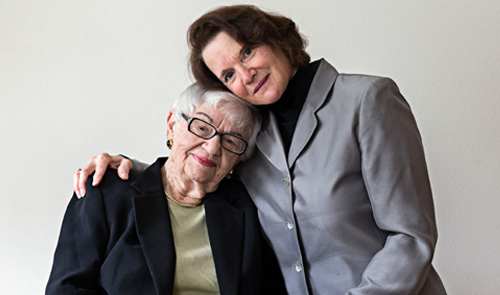Honoring a Mother’s Legacy
Profile from Fall 2016 issue of the Museum’s Planned Giving newsletter Generations

Legacy of Light Guardian Pillar Judith Fagin of Cambridge, Massachusetts, with her mother, Helen Fagin, of Sarasota, Florida
Growing up as the daughter of a Holocaust survivor, Judith Fagin knew there were certain questions not to be asked, certain topics not to be discussed. Outside the home, her mother, Helen, led a distinguished career as an educator, teaching Holocaust literature and Judaic studies at the University of Miami for more than 40 years.
Reluctant to speak publicly about her Holocaust experiences, Helen was eventually encouraged to do so by Elie Wiesel, who convinced her that those who went through it had an obligation to teach it. Elie later asked Helen to advise him on building a national institution—the United States Holocaust Memorial Museum—that would ensure generations to come would learn from this history.
“My mother changed a lot of lives during her career, through her teaching and through the institutions that she helped establish,” said Judith. “She deserves acknowledgment and recognition for the impact she has had.”
Prompted by the need to update her will due to a change in her personal situation, Judith began considering what legacy she wanted to leave for the future. She could think of nothing better than to honor her mother’s lifelong commitment to Holocaust education. “I wanted to honor her as an individual, a survivor, and an educator and to make this a legacy for our family, which was profoundly affected by the Holocaust,” said Judith.
After initially approaching the Museum about supporting its teacher training programs, Judith learned the scope of its educational initiatives was much larger than she realized. She established the Helen N. Fagin Education Endowment Fund to enable the Museum to continue offering what Judith calls “enlightened Holocaust education” to people with and without a connection to the Holocaust—from teachers to law enforcement officers to members of the military and judiciary.
When she informed her mother of her decision, Helen’s immediate reaction was profound. “She thought her family didn’t understand the importance of her work. This was proof that we did—and that her contribution to Holocaust education would be extended and expanded in perpetuity.”
